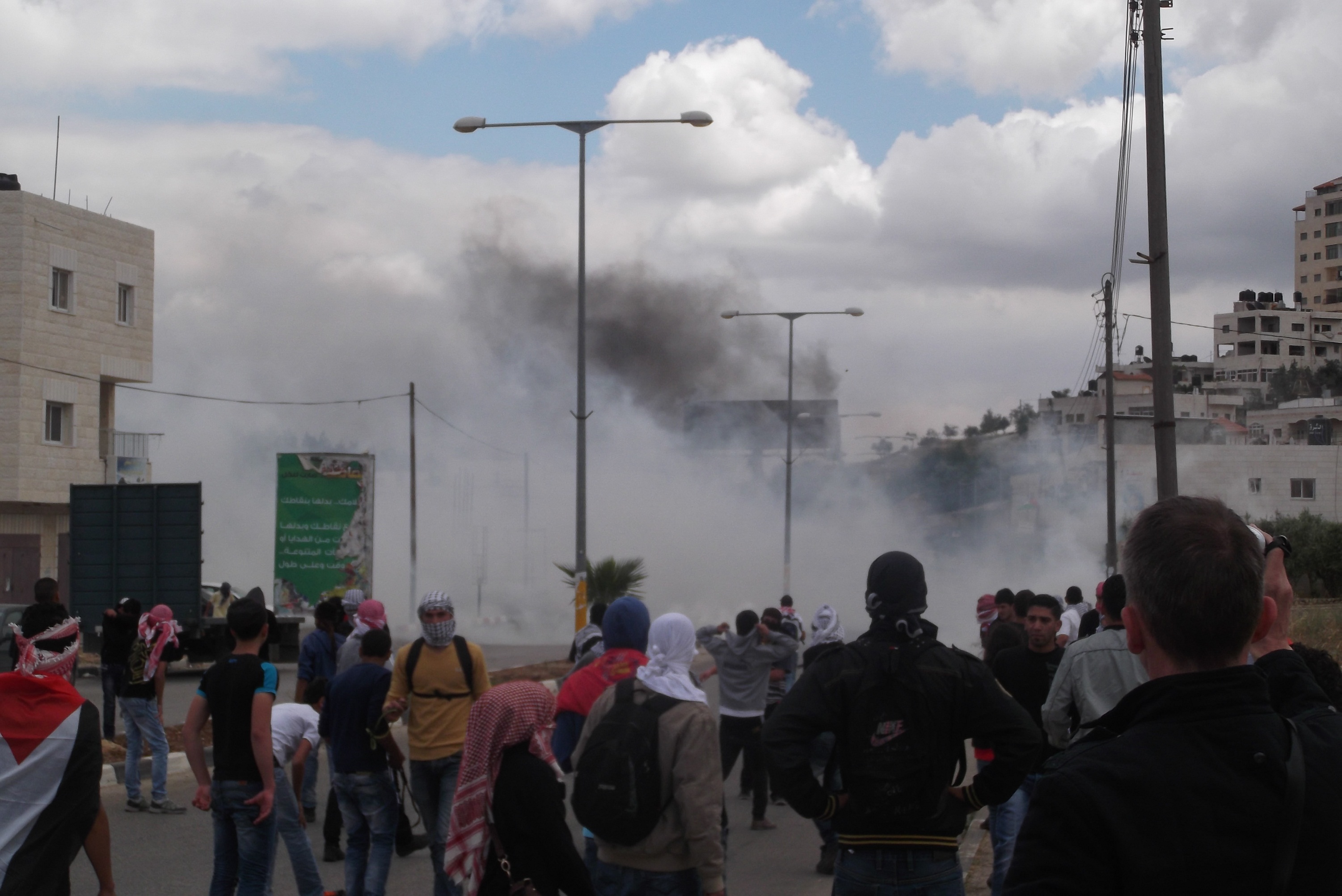Year: 2013
-
Military presence at Hebron schools – regular updates
7th May 2013 | International Solidarity Movement, Team Khalil | Hebron, Occupied Palestine Regular updates on harassment of Palestinian schoolchildren by Israeli military in Hebron monitored by the International Solidarity Movement. 27th May: Today, Israeli soldiers continued their harassment of Palestinian youth on their way to and from school. Due to exams, several classes of…
-
Right of Return still key – Nakba Day demonstrations violently suppressed by Israeli forces
15th May 2013 | International Solidarity Movement | Ramallah, Occupied Palestine By Team Ramallah The 15th May marks the 65th anniversary of the expulsion of 750,000 Palestinians from their homes and the destruction – and massacre in some cases – of more than 500 Palestinian villages by Zionist forces in 1948. 65 years on, the…
-
Sawiya night attack by settlers sees property damaged and graves vandalized
15th May 2013 | International Solidarity Movement, As Sawiya, Occupied Palestine By ISM Nablus In the early hours of Monday morning, a group of Zionist settlers from the Eli and Rechalim colonies attacked the Palestinian village of As Sawiah, east of Salfit. At about 3am, As Sawiah’s residents were sleeping as settlers attacked, first targeting…

